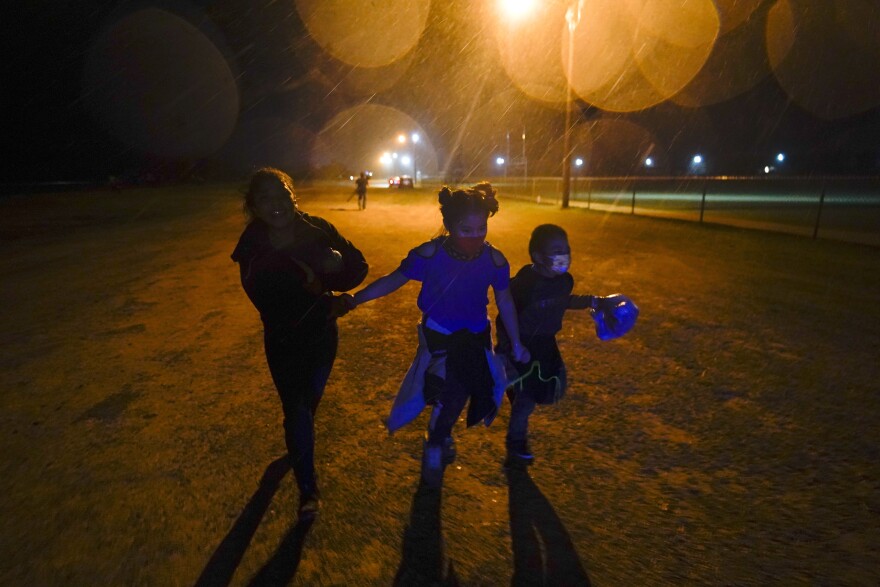The threat of immigration enforcement actions at schools has concerned teachers across the state.
In March, a boy was pulled of Konawaena Elementary School on Hawaiʻi Island after his father was detained by U.S. Immigration and Customs Enforcement.
The Hawaiʻi Department of Education released a document last month providing teachers with guidance on how to respond when law enforcement officials enter a campus.
HPR spoke with Andrea Eshelman, the deputy director and chief negotiator for the Hawaiʻi State Teachers Association, about the new guidance.
Will law enforcement go to the principal's office or straight to classrooms?
ANDREA ESHELMAN: The DOE has a standard policy that all visitors go to the office first. In addition, the teacher's contract, the HSTA contract, actually has very specific language about visitors to classrooms and police officers, in particular, are listed and not supposed to be sent to classrooms unless it is an emergency. And we would consider an emergency like a medical emergency kind of situation — they're responding as first responders in that regard. And so they are supposed to be limited to the office. And if a child does need to be removed from a classroom, then normally that removal is going to have some other employee. They might send a security guard to the classroom, but usually it's probably going to be just a phone call asking the teacher to refer the child up to the office, send them to the office, or perhaps a counselor might come by. It kind of depends on the situation and what's going on.

What guidance have teachers been given?
ESHELMAN: It's pretty extensive. It goes through the steps. It reinforces the obligations or lack thereof, of the department to comply. It explains the differences between different types of warrants that might come forward and the protocols as to who needs to be called and how they need to be contacted. And there's phone numbers in case they can't reach a particular person. There's additional offices to call and prioritize that. We've been assured by the department as well that they have essentially a plan in place, a hotline, if you will. Once, that CAS (Office of the Complex Area Superintendent) gets that call from the principal, they will put things in motion to immediately prioritize everyone, pull them out of meetings if necessary, and be on call to support that school as needed.
What other guidance is important for mixed-status families to consider?
ESHELMAN: I think in those types of communities, many of our allies in the immigration advocacy space have been providing support for folks understanding their rights, understanding when and where they're obligated to respond to law enforcement officials, for example. And then I think the other point that is being made with many of these families, which is not a fun thing to think about, but having a family conversation about what will happen if a parent is targeted and picked up, and then there's a deportation situation happening, what will happen with that child? Are they going to leave that child with maybe another family member or a trusted friend? Are there power of attorney types of documents that need to be put into place? And so we do know that our friends in that area of work are providing that advice to families to really have those hard conversations and think about what they might do in those situations.
To read the guidance, click here.
This interview aired on The Conversation on April 11, 2025. The Conversation airs weekdays at 11 a.m.




